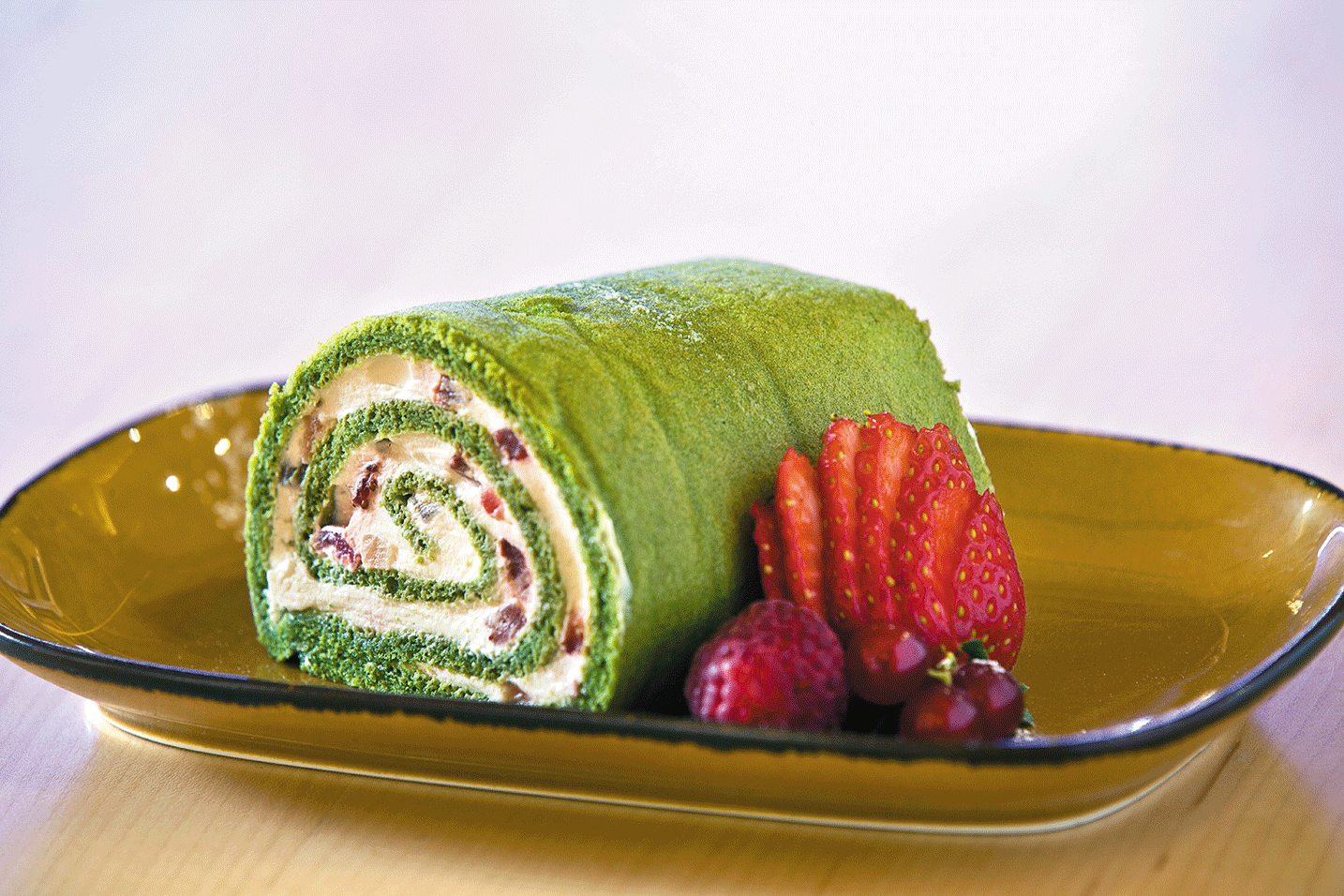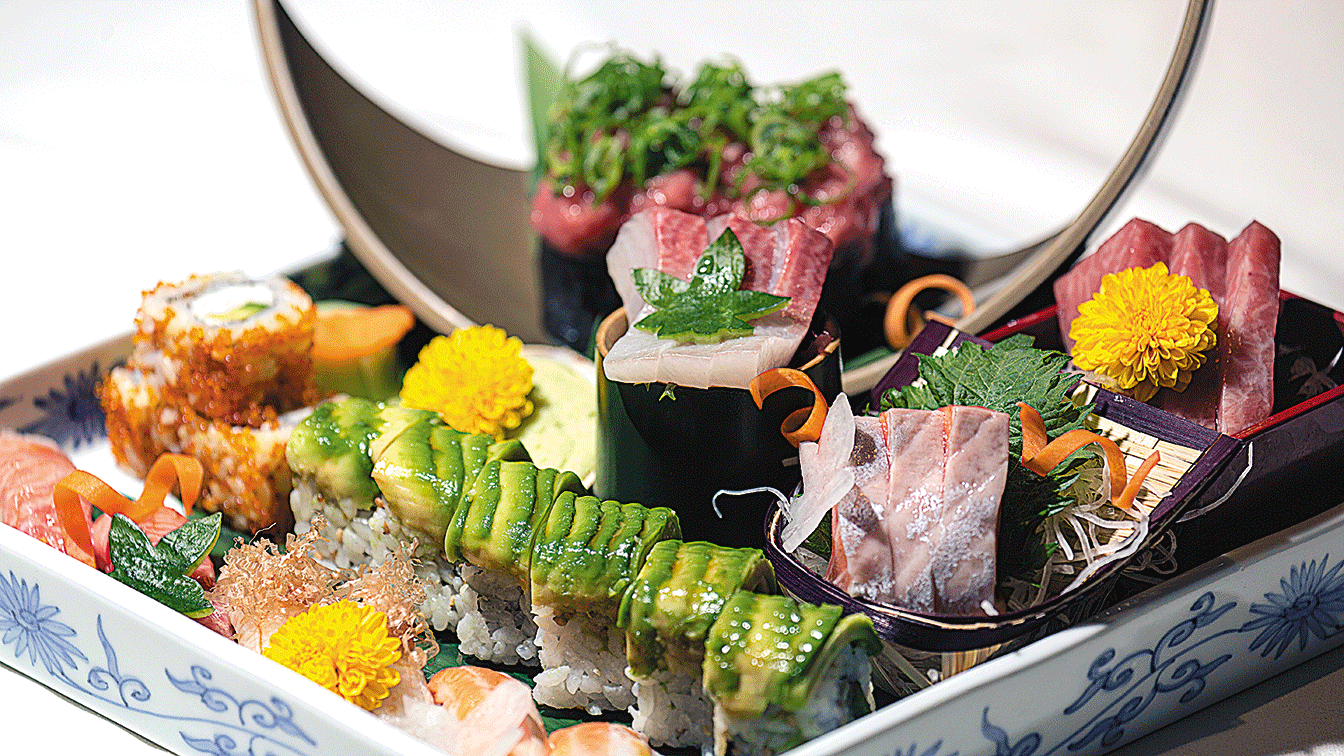
There is a well-known proverb in Japan about food that goes: “He who has his stomach full only 80 per cent will not need a doctor.” And indeed, this restrained approach to eating underpins much of the country’s cuisine.
In the UAE, Japanese dining was a hot trend a couple of years ago with Nobu and Okku flying the flag for delicate yet uber-modish dishes served in nightclub-style venues to the fabulous set. And in general, Japanese eateries have done well in the country. But are they still as popular in 2015?
Always fashionable
Robert Ancill, CEO of The Next Idea, a consultancy firm that advises restaurateurs on market trends, believes Japanese cuisine has a unique appeal, which means it is unlikely to suddenly become unfashionable. “Japanese food is so entrenched in everyday dining that it won’t go out of fashion in the foreseeable future,” he says. “We would advise someone looking to launch a Japanese venue to focus on the healthy and purist attributes of the cuisine. The environment must be relevant and modern, using technology to the maximum to attract young expat and national consumers. The concept needs to be hip and cool for the UAE market — preferably with a twist.”
One new Abu Dhabi eatery that has come up with such a twist is Mikado Café. Launched in December, it offers Japanese food infused with both Western and European ingredients, including baked goods, desserts, specialist home-made mochi ice creams, as well as an impressive assortment of traditional Japanese teas such as Sencha and Bancha. Popular dishes include the biscuit bread, chirashi Mikado, shokupan white chocolate pudding and matcha roll cake — sponge cake with matcha powder. “The success of the flavour combination lies in the fact that the bitterness of matcha goes very well with the tart flavour of the berries and the sweetness of the light whipped cream we serve it with,” says Executive Chef Fabio Nakazato. “When it comes to Japanese food, the harmony of the flavours is paramount.”
The gorgeous Tori No Su restaurant at Jumeirah at Etihad Towers is something of an introduction to Japanese culture itself. Chef de Cuisine Takashi Ando has applied decades of skill as a kaiseki-trained chef to serve up hitokuchi or bite-size gourmet treats at the bar, skewered culinary creations at the robatayaki counter, and more intricate creations at the regular dining areas including a beef and foie gras roll and teppanyaki chocolate cigar. “At the core of the cuisine is the notion that only ingredients that are at their zenith with regard to freshness, flavour and seasonality should be used,” Ando tells GN Focus. “Taste, texture and balance are key, whereby the integrity of the ingredients should never be lost. Presentation also plays an
important role, as does the whole dining experience.
“The dishes should be thoughtful and prepared so they’re easy to eat. The sizing of each element to bite-size pieces is important.”
More options
For a long time, the world-renowned Nobu at Atlantis The Palm, Dubai, was considered the venue of choice for Japanese fine dining. Indeed, it is still a force to be reckoned with, thanks to its cutting-edge style and a truly stunning space where one can enjoy delicacies such as the famed sashimi salad with matsuhisa dressing, yellow tail sashimi with jalapenos and black cod in miso.
However, other restaurants are swaying opinion. Tomo at Raffles Dubai is now a firm favourite among many diners. Nestled on top of the pyramid-shaped hotel, it comprises three separate dining areas, each with a different feel and atmosphere, as well as their own outdoor terraces. The much-sought-after formal dining Tatami terrace boasts amazing views over the Dubai Creek.
Chef and owner Chitoshi Takahashi has spent a long time developing dishes to impress Dubai’s hard-to-please diners. Signature plates such as the black cod are raved about by connoisseurs, while the Japanese halal charcoal-grilled Wagyu and fantastically fresh sushi and sashimi keep bookings busy.
“This food is certainly still popular in the UAE, as seen by the fast growth of the Japanese gastronomic industry in the country, as well as in the Middle East in general,” says Takahashi. “Japanese people respect all the traditions of their cuisine fervently, from the way of cooking to the way of enjoying the different dishes. At Tomo we cook what they would want to eat, making us a real authentic restaurant in every sense of the word.”
For those who want to cook some dishes at home, Dubai has a surprising number of stores selling imported products. The unusually named supermarket Deans Fujiya in Oud Metha stocks a mind-boggling array of goods from buckwheat noodles and savoury rice crackers to sushi mats, sushi seasoning, Japanese ginger and miso paste. It also sells some lovely oriental crockery and table decorations. In Al Wasl Square, the upmarket Japanese bakery Yamanote is also well worth a visit.








